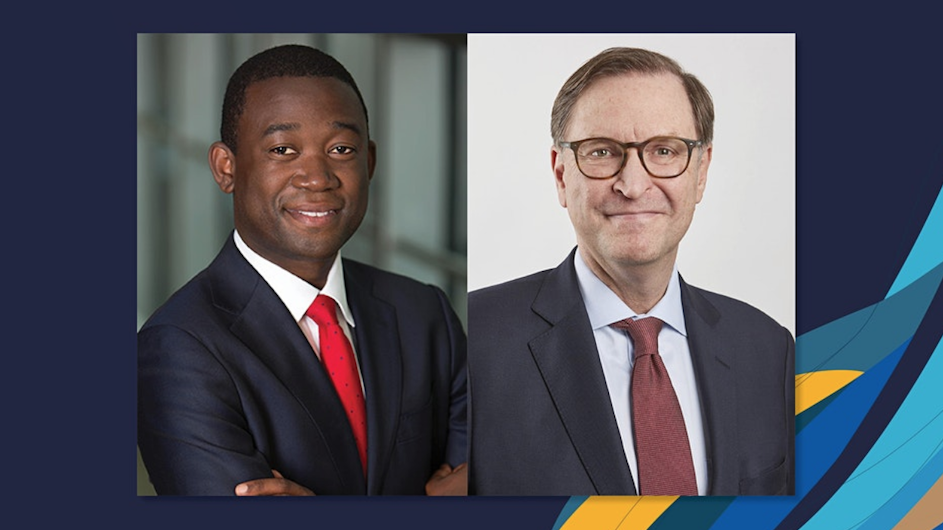Columbia World Projects brought together former senior administration officials on May 7 for “Wally Adeyemo & Glenn Hubbard on Higher Education, the Economy & COVID-19,” an online event on macroeconomic policy and the role of universities during the coronavirus pandemic.
Wally Adeyemo is President of the Obama Foundation and former Deputy National Security Advisor for International Economics. Professor Glenn Hubbard is Dean Emeritus and Russell L. Carson Professor of Finance and Economics at Columbia Business School and former chairman of the Council of Economic Advisers. The two spoke in a livestreamed discussion and audience Q&A moderated by Shailagh Murray, Executive Vice President for Public Affairs at Columbia and former journalist for The Wall Street Journal and The Washington Post. The event was cosponsored by Columbia Business School and the School of International and Public Affairs (SIPA).
“We’re going to explore the socioeconomic dynamics of COVID-19 and focus in particular on vulnerable communities,” Murray said in opening remarks to the event. “We’ll be addressing policy solutions, but also exploring the evolving role for institutions like Columbia and the Obama Foundation, which happen to be in neighborhoods of New York City and Chicago that are among the hardest hit by all dimensions of this pandemic. This is a challenging period for the whole world, but it’s also revealing strengths and weaknesses of the modern U.S. economy and the public policy architecture that undergirds it.”
In the conversation that followed, the panelists discussed what surprised them about the pandemic and the response to it so far, what is coming to light in the crisis about economically fragile communities, what policy options are available for keeping small businesses afloat, the stark contrast between the strong stock market and the battered other parts of the economy and what policy responses to the 2008 financial crisis could be replicated now.
Hubbard acknowledged that our country is going to be faced with difficult decisions. "Everyone is so focused on getting back to normal. I have a hunch, we're not going to get there."
Adeyemo added, "One of the things that we have to do is not fail to imagine what the world looks like going forward."
The panelists then discussed how large and well-resourced institutions like Columbia and the Obama Foundation can help their local communities—Harlem and the South Side of Chicago—respond to the economic fallout from the coronavirus.
After the discussion, the panelists took questions submitted by registered guests about how international leaders can respond to the crisis, whether the government would be able to afford future crises given the debt it has taken on already and whether these kinds of crises make consumers more risk-averse, among other topics.
Watch the full video below:

